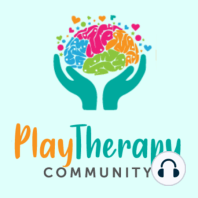28 min listen

40: A Parents Guide to Having a Helpful and Productive Meeting at School
40: A Parents Guide to Having a Helpful and Productive Meeting at School
ratings:
Length:
24 minutes
Released:
Oct 31, 2016
Format:
Podcast episode
Description
Episode 40, A Parent’s Guide to Having a Productive & Helpful Meeting at School In This Episode: Many different types of meetings occur in the school setting. For parents, the most common are parent / teacher conferences, IEP meetings, 504 meetings, meetings to address a specific concern and/ or gather information, and so on. .. Each school has its own culture and each district and/or school has certain protocol, policies, and procedures that they follow. Usually, these are readily available either on the website, the student handbook, calendar or request from the school. Regardless of the type of meeting that you are attending and where you are attending it at, having a few basic elements in place can make a huge difference between a productive and helpful meeting to one that is not. As a disclaimer, I worked as a teacher and a school counselor for years in a wonderful charter school so I am giving you my opinion from my limited view point. Just like with any information, take what you need of this information and leave the rest. You may not agree with what I’m saying and that is okay. My intent is to provide some tips that may help you. Sometimes meetings at school can involve some information and decisions that are heavy by nature. This can lead to a wide array of emotional responses. Here’s some tips that I believe can help meetings at your child’s school be more successful: BE ON TIME – this starts the meeting off with respect to the importance of everyone’s time, as well as afford you and the school the time allotted to focus on how to best help your child. Tardiness or last minute reschedules can really set a tone from the start. With this said, sometimes things happen. If you are late or need to reschedule, always apologize and try your best to not let it happen again. ERR ON THE SIDE OF KINDNESS and RESPECT – You can’t go wrong with kindness and respect, even if you don’t feel like it is reciprocated. The old adage “You can get more bees with honey than vinegar” applies here. CONSIDER YOURSELF AS PART OF THE “TEAM” - Viewing yourself as part of the team that is working together to help your child can create a different energy around the entire situation. Remember, the others on the team are people too that are in the field of helping children. BRAINSTORM A LIST OF THINGS THAT YOU WOULD LIKE TO COVER - This will help you to prepare for the meeting and increase the chances that you get your questions answered and concerns addressed. In some cases, it’s helpful to send this to the person that coordinates the meetings, such as the school counselor or the assistant, to give them time to prepare. Be sure the email is written in an information seeking way that conveys kindness and respect. It may be helpful to write it out a few days before you send it to allow yourself time to edit the content to get it just like you want it. SOMETIMES PARENTS BRING A PERSON TO THE MEETING AS PART OF THE TEAM – I’ve been in meetings with the child’s therapist, a friend of the family, a family advocate, and a handful of people that offered some other type of support in the child’s life. For this to happen, it is always best to let the school know beforehand. A letter of authorization that allows the school to discuss private matters about your child in front of the guest that you bring to the meeting will most likely be required. ALWAYS STAY PROFESSIONAL – If you feel yourself getting upset, it may be helpful to excuse yourself to the restroom to engage in some calming practices before you return. Communicating while we are emotionally flooded can cause relationship ruptures that are difficult to repair. Remember, always err on the side of kindness and respect. It is everyone’s best interest to establish and maintain a good relationship. FOLLOW-UP COMMUNICATION AFTER THE MEETING – It may be appropriate to send a thank you email to all of the participants that include a list of the key points that yo
Released:
Oct 31, 2016
Format:
Podcast episode
Titles in the series (100)
07: A Passionate Play Therapist Shares Her Love for the Nurtured Heart Approach: Tammi VanHollander by Play Therapy Community